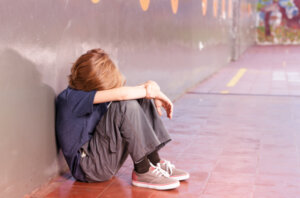8 Reasons You’ll Never Know Your Child is Being Bullied

Bullying is a familiar topic in the world of complex kids, and internationally renowned parent author and educator, Barbara Coloroso, has written a 3 part series on Bullying for us – why kids don't tell, signs that it might be happening, and what you as a parent should do about it. This is part 1 of the 3-part series.
The one thing all bullied kids have in common is that someone targeted them for being different in some way. Kids with ADHD are often at a greater risk of being targeted than their peers. They are easy targets for peers who mimic them, mock their interests, and provoke them to act in ways that get them in trouble. Such mean and cruel behavior provides entertainment for the bullies and the not-so-innocent bystanders -- and plenty of pain and suffering for their targeted peers.
It is heartbreaking to suspect that your child is being bullied. But don't count on your child telling you outright.
- Your daughter has good reasons for not walking in the door and declaring that her life is being made miserable by bullies, kids who refused to let her sit at their table in the lunchroom, pushed her off the swing, wrote ugly things about her on the bathroom mirror, and taunted her as she waited for the bus.
- Your son has just as many good reasons for remaining mum about being shoved into his locker, forced to hand over his jacket, called names in the hallway, tripped in PE class, and threatened with bodily harm if he didn't give up his lunch money.
Article continues below...
Minimize Meltdowns!
Download a free tipsheet "Top 10 Ways to Stop Meltdowns in Their Tracks" to stop yelling and tantrums from everyone!
So, what are the reasons your complex kids might not tell you if your child is being bullied?
- They are ashamed of being bullied. Bullies bully because they can. Their methods of attack are intended to wound and diminish the target, often focusing on attributes or characteristics the child has no control over. Most kids who are bullied are decent, caring human beings who would not target another human being. They find it difficult to understand why someone would attack them for no reason—because there is no valid reason.
- They are afraid of retaliation if they tell an adult. Bullies threaten and have every intention of acting on the threats. Your kids know that, and they don't want to do anything to make things worse.
- They don't think anyone can help them. They feel helpless. Maybe they reported bullying before, and nothing constructive happened or telling made things worse.
- They don't think anyone will help them. They feel hopeless. When they reported it, just like we told them to, they were told: “Walk down another hallway,” “Avoid the bully,” “Eat somewhere else if you don't like what's happening in the lunchroom,” or “Ignore them.”
- They have bought into the lie that bullying is a necessary part of growing up. We taught them the lies: “Boys will be boys,” “Girls are just mean,” and “It's part of growing up.”
- They may believe that adults are part of the lie. Some of the adults in their life may bully them, too, whether consciously or not. Adult bullies might give other kids “permission” to torment them or at least sanction such behavior.
- They have learned that “ratting” on a peer is bad, not cool — even if that peer is bullying them. Just “letting” it go is supposed to be a more “mature” response to getting verbally abused, physically abused, or shunned.
- They fear that parents and educators will take the bully's word over theirs. This is not a misperception on the part of the targeted child. Often bullies can spin tales of deception and lie about the target being weak, pathetic, or the villain—and certainly not the one being abused.
Bullies who get what they want from their targets, targets who are afraid to tell, bystanders who watch, participate or look away, and adults who see bullying as teasing and as a necessary part of growing up – all of this makes for a dangerous combination. Add to this the helplessness and hopelessness felt by the bullied child, and there is a good reason why you might be kept in the dark.
If you're concerned that your child is being bullied at the hands of peers or even at the hands of adults you have entrusted, start by having simple conversations that begin to debunk some of their myths and fears. Keep it simple and subtle, and just give them opportunities to share what they want to share – without feeling like you're going to freak out or make things worse.

